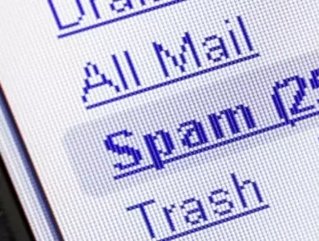Study Finds Most Work Emails Are Spam or Not Important

A recent study shows that only one in every four work emails is actually important, and only 14 percent of work emails are “critically important.”
The research only loosely defines what is considered important and what falls into the “nonessential for work” mire, but it is based on survey responses from 500 information technology decision makers, based in the US, United Kingdom and South Africa.
Data also determined that 11 percent of nonessential emails are personal and seven percent are spam. And though there’s no doubt that unimportant emails are a nuisance, they can also pose a threat to an organization’s security. Email-based viruses and security breaches are becoming increasingly scary to companies, particularly with the popularity of remote and mobile email services.
“What is clear is that the average employee faces a significant challenge in simply processing the information that comes into their inbox and identifying which messages are genuinely business critical,” said Nathaniel Borenstein, chief scientist at Mimecast, the email management firm that conducted the research. “We often end up working for email, rather than having email work for us.”
Unfortunately, there isn’t currently a viable alternative to email, so employees will simply have to keep wading through their infiltrated inboxes, armed with filtering tools and know-how.
The study did find that businesses have been ramping up social media use: 55 percent of companies use LinkedIn while 47 percent use Facebook. And even though the survey showed that social media increases the potential for information leaks, one in three respondents said that increased social media use results in decreased use of email.
“Email will remain a fundamental business tool for many years to come,” Borenstein said. “It is the global standard; but not always the gold standard. It is therefore vital that email can continue to develop and adapt as technology and working practices change.”






